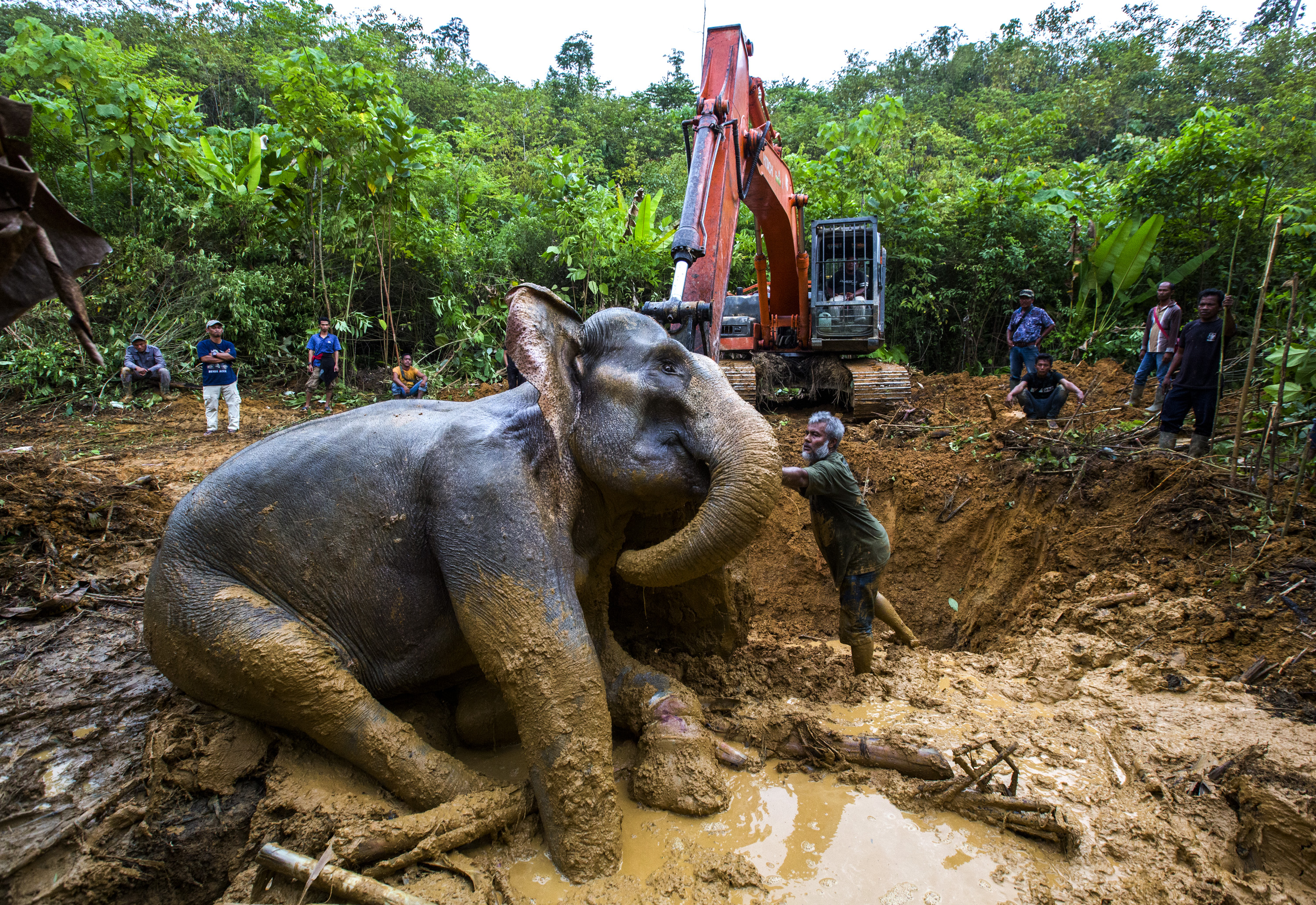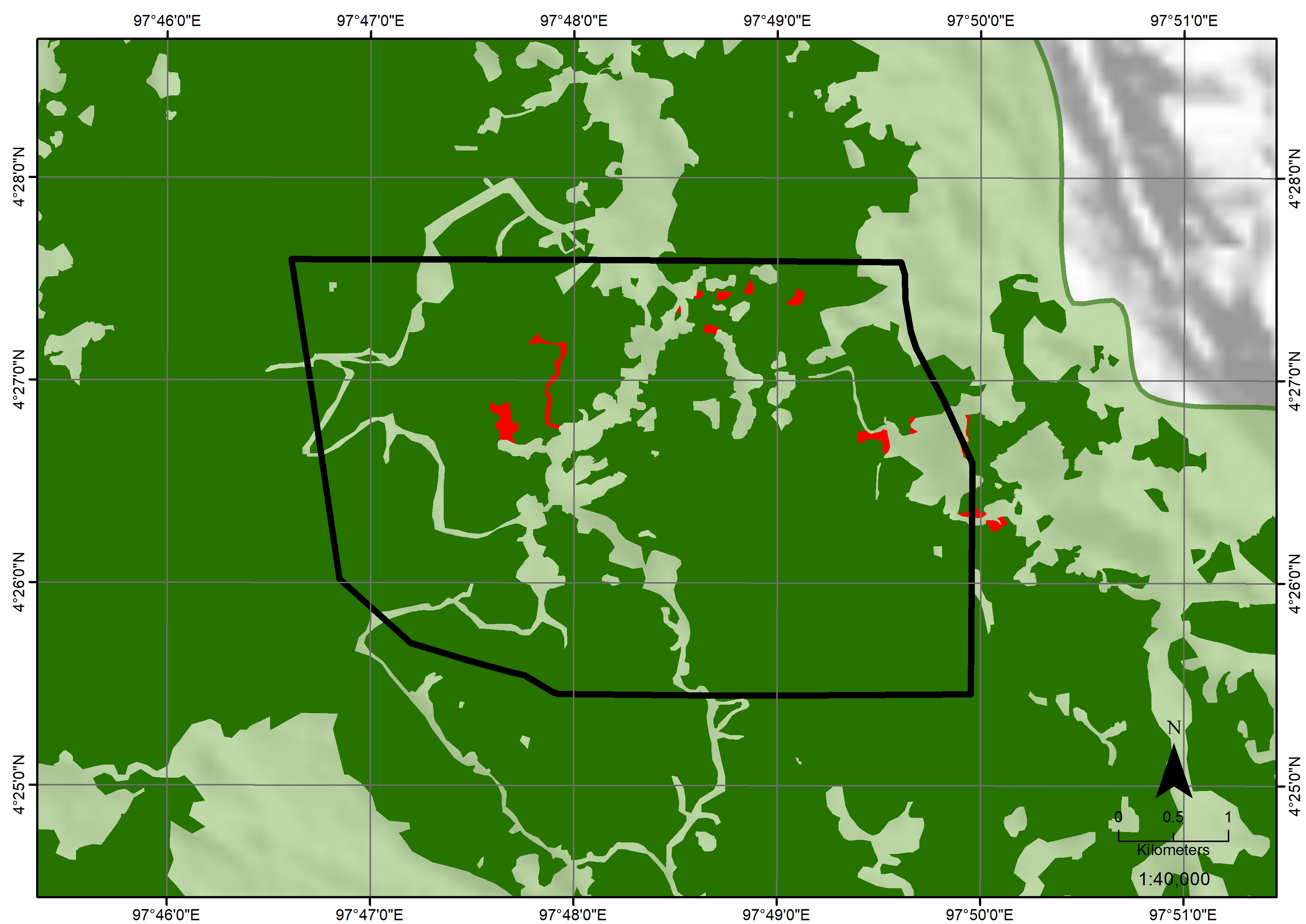New satellite data obtained by RAN has revealed steady, continued deforestation taking place within one of the most critical lowland rainforest habitat corridors left in Indonesia. Located inside the globally important Leuser Ecosystem on the island of Sumatra, the active forest clearance is taking place in a palm oil concession operated by a plantation company called PT Nia Yulded (PT NY) and is occurring despite a presidential moratorium banning any further forest clearance for palm oil, which has included a special emphasis on the need to protect the biologically diverse forests of the Leuser.

The elephant pictured here was known to local villagers, who called her ‘Daisy.’ Daisy was utilizing a narrow forested corridor between two palm oil plantations this September when her foot was caught in a snare intentionally set either for poaching or to keep elephants out of the nearby plantation. She pulled the snare out of the ground but the injuries she suffered led to her death shortly after. Tragically, this sort of human-wildlife conflict is all too common when palm plantations encroach into the only viable habitat remaining for these highly endangered animals.
The area where the deforestation is occurring is in the NE section of the Leuser Ecosystem and is part of the last, best expanse of intact lowland forests left in Sumatra. The forest being razed contains internationally recognized concentrations of biodiversity, including critically endangered Sumatran orangutans as well as Sumatran tigers, of which only a couple hundred are known to remain in the wild.
But it is the crucial importance of the region as a travel corridor for Sumatran elephants that concerns wildlife biologists the most. The forest in question provides connectivity between two blocks of larger habitat and is thought to be utilized by a herd numbering around 200 elephants, a significant percentage of the total worldwide population of the species.

Satellite imagery documents that the concession operated by PT Nia Yulded contained 1,901 hectares of forest in January 2018, which was reduced to 1839 hectares by September and then down to 1821 hectares in October 2018. The ongoing forest loss underscores the urgent need for brands using palm oil to engage with their suppliers, and producer companies clearing forests for new plantations within their sourcing areas, to ensure each is complying with their No Deforestation, No Peatland, No Exploitation policy commitments and establish transparent monitoring systems to enforce the moratorium on forest clearing for plantation developments in critical landscapes such as the Leuser Ecosystem. The alternative is death by a thousand cuts to one of the world’s last great rainforest regions as well as the final extinction of the Sumatran elephants, orangutans and tigers.
PT Nia Yulded is operating in breach of President Jokowi’s three-year moratorium on the issuance of palm oil permits and and should be subject to an investigation by the Indonesian Ministry of Environment and Forestry.
